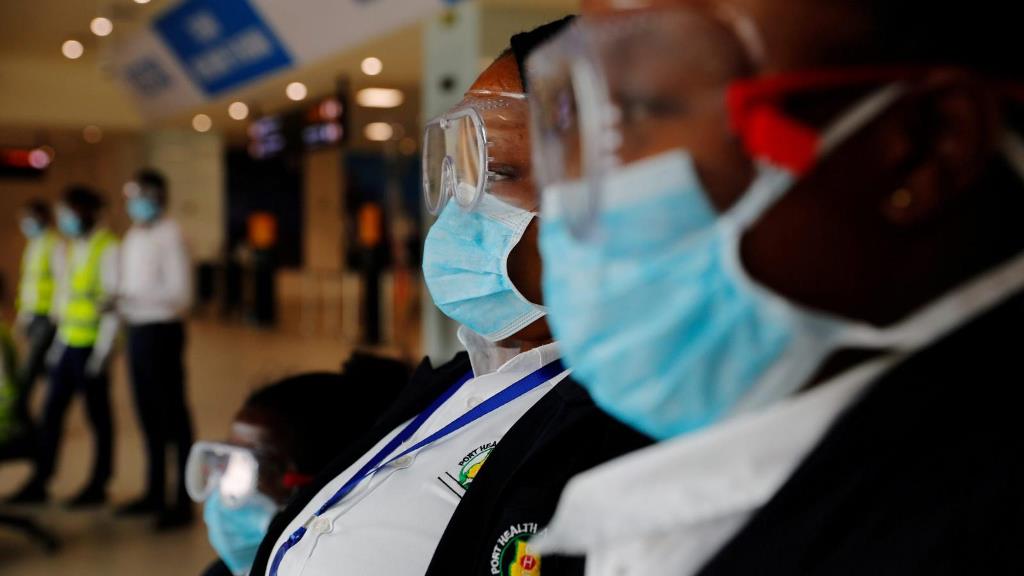BANK of Tanzania (BoT) is watching and monitoring closely the contagion effects of the novel coronavirus to country`s economy growth, which at the moment are insignificant but may disrupt budgetary policies.
The monetary policy, according to BoT, seems stable at the moment but may be affected in medium and long term if experts failed to contain the contagion before mid-year.
BoT’s Macro prudential Analysis and Crisis Management Manager, Dr Deogratias Assey, said it was too early to access the economic impact and disruption caused by the epidemic.
“We are following up the virus closely while working on mitigation aspects…. Dr Assey told “Daily News” at the sideline of media seminar organised by BoT in Arusha late last week.
He, however, said Ministry of Health will face fiscal consequences since it has to spend outside its budgetary plan for preparedness on combating COVID- 19.
“The way I see it is that the ministry will have to shift some vote allocations in bid to combat the disease at prevention stages.
This will have same effect on some of the ministry votes for development or expenditure,” Dr Assey said. The Ministry of Health recently said some 140 thermal scanners had been set up in all ports of entry in the country.
Dr Assey, on the other hand, warned that the economy might suffer challenges on monetary policy should the virus continue toward June and beyond.
The most affected sectors will be tourism, mining, manufacturing, agriculture, trade and finance— banking industry, and the country industrialisation policy.
Dr Assey said tourism will be mostly and immediately affected sector since many tourists are coming from Europe and China.
“This may contribute to shortage of foreign currency and widen deficit gap on external account… to affect our imports of goods and services,” he said.
The spiral effect of the tourism sector will impair movement of people—tourists—thus cutting foreign revenue, domestic income for tour operators, jobs, tax revenue and the like. “This will limit and increase import costs due to lack of forex and uppers inflation,” Dr Assey said.
Also banks may suffer as companies—especially on manufacturer and agricultural—may fail to repay their debt in time since they too haven’t received raw material in time.
“I think it’s time to start thinking on policies that will enable affected sectors to sail through coronavirus [COVID-19] turbulence era,” Dr Assey suggested.
Such policies include stimulus packages cushion banks and agro-sectors from collapsing.
The service receipts, according to BoT Monthly Economic Review for February, accounted for 42 percent of total exports in for ending January where total exports were 9.92 billion US dollars.
According to SafariBookings. com, more than 86 per cent of globally safari tour operators are experiencing a significant decline in bookings due to fears of the coronavirus outbreak.
The survey covered a total of 360 operators. Zanzibar has temporarily suspended direct flights from Italy as it intensifies preventive measures against the deadly coronavirus.
Globally, China has said its quarter one GDP will slow down to 4.5 per cent against 6.0 per cent of previous quarter due to the contagion disease that has cause havoc in world.
China contributes 16 per cent of the global economy growth. Dr Hildebrand Shayo, an economist-cum-banker, said Moody’s analysts report released recently indicates that the coronavirus was likely to have the largest negative impact on goods and services sectors within and outside China for those rely on Chinese consumers and intermediary products.
“While it might be too early to say what the extent of the impact on Tanzania or East Africa will be, let’s identify some effects at least in short and long term on our region,” Dr Shayo said.
Last week stock analysts said Dar es Salaam Stock Exchange (DSE) abysmal performance plunged by 99.03 per cent last week at what termed as the impact of coronavirus on global markets.
Zan Securities Chief Executive Officer (CEO), Raphael Masumbuko said: “equity market posted abysmal performance…largely due to the impact of coronavirus on global markets.”
Globally, stock markets in Europe and the US are braced for their biggest falls since the 2008 financial crisis after the trading week began with panic selling amid the double threat of a coronavirus-driven global recession and an oil-price war.
Since the cost of contagion could be very large thus response, to save the economy, should be large enough to reduce the effects of the coronavirus once it emerges in the country.
The value of imports increased to 10.78 billion US dollars in the year ending January from 10.42billion US dollars in previous year.
“The growth observed in capital goods import bill was driven by building and construction materials, and machinery, consistent with the on-going mega infrastructure projects,” BoT latest Monthly Economic Review said.
Traders at Kariakoo, the biggest market for clothes and ceramics in the country, have started to fill the pitch of COVID-19 dried up shipments from China. Other areas are mining sector, especially after the opening of the mineral exchanges in most regions.
Also inflows in way of Foreign Direct Investment (FDI) may hump the Industrialisation drive as well.
The contagion disease as of last Thursday had affected 85 countries, including Japan, Korea, Vietnam, Singapore, Australia, Malaysia, Thailand, Nepal, America, France, Italy, German, United Kingdom, Iran, United Arab Emirates, Egypt, Algeria, Nigeria and Senegal.







